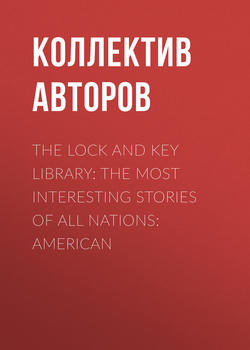Читать книгу The Lock and Key Library: The most interesting stories of all nations: American - Коллектив авторов, Ю. Д. Земенков, Koostaja: Ajakiri New Scientist - Страница 4
American Mystery Stories
Melville Davisson Post
Introduction to The Corpus Delicti
ОглавлениеThe high ground of the field of crime has not been explored; it has not even been entered. The book stalls have been filled to weariness with tales based upon plans whereby the DETECTIVE, or FERRETING power of the State might be baffled. But, prodigious marvel! no writer has attempted to construct tales based upon plans whereby the PUNISHING power of the State might be baffled.
The distinction, if one pauses for a moment to consider it, is striking. It is possible, even easy, deliberately to plan crimes so that the criminal agent and the criminal agency cannot be detected. Is it possible to plan and execute wrongs in such a manner that they will have all the effect and all the resulting profit of desperate crimes and yet not be crimes before the law?
We are prone to forget that the law is no perfect structure, that it is simply the result of human labor and human genius, and that whatever laws human ingenuity can create for the protection of men, those same laws human ingenuity can evade. The Spirit of Evil is no dwarf; he has developed equally with the Spirit of Good.
All wrongs are not crimes. Indeed only those wrongs are crimes in which certain technical elements are present. The law provides a Procrustean standard for all crimes. Thus a wrong, to become criminal, must fit exactly into the measure laid down by the law, else it is no crime; if it varies never so little from the legal measure, the law must, and will, refuse to regard it as criminal, no matter how injurious a wrong it may be. There is no measure of morality, or equity, or common right that can be applied to the individual case. The gauge of the law is iron-bound. The wrong measured by this gauge is either a crime or it is not. There is no middle ground.
Hence is it, that if one knows well the technicalities of the law, one may commit horrible wrongs that will yield all the gain and all the resulting effect of the highest crimes, and yet the wrongs perpetrated will constitute no one of the crimes described by the law. Thus the highest crimes, even murder, may be committed in such manner that although the criminal is known and the law holds him in custody, yet it cannot punish him. So it happens that in this year of our Lord of the nineteenth century, the skillful attorney marvels at the stupidity of the rogue who, committing crimes by the ordinary methods, subjects himself to unnecessary peril, when the result which he seeks can easily be attained by other methods, equally expeditious and without danger of liability in any criminal tribunal. This is the field into which the author has ventured, and he believes it to be new and full of interest.
It may be objected that the writer has prepared here a text-book for the shrewd knave. To this it is answered that, if he instructs the enemies, he also warns the friends of law and order; and that Evil has never yet been stronger because the sun shone on it.
[See Lord Hale's Rule, Russell on Crimes. For the law in New York see 18th N. Y. Reports, 179; also N. Y. Reports, 49, page 137. The doctrine there laid down obtains in almost every State, with the possible exception of a few Western States, where the decisions are muddy.]
